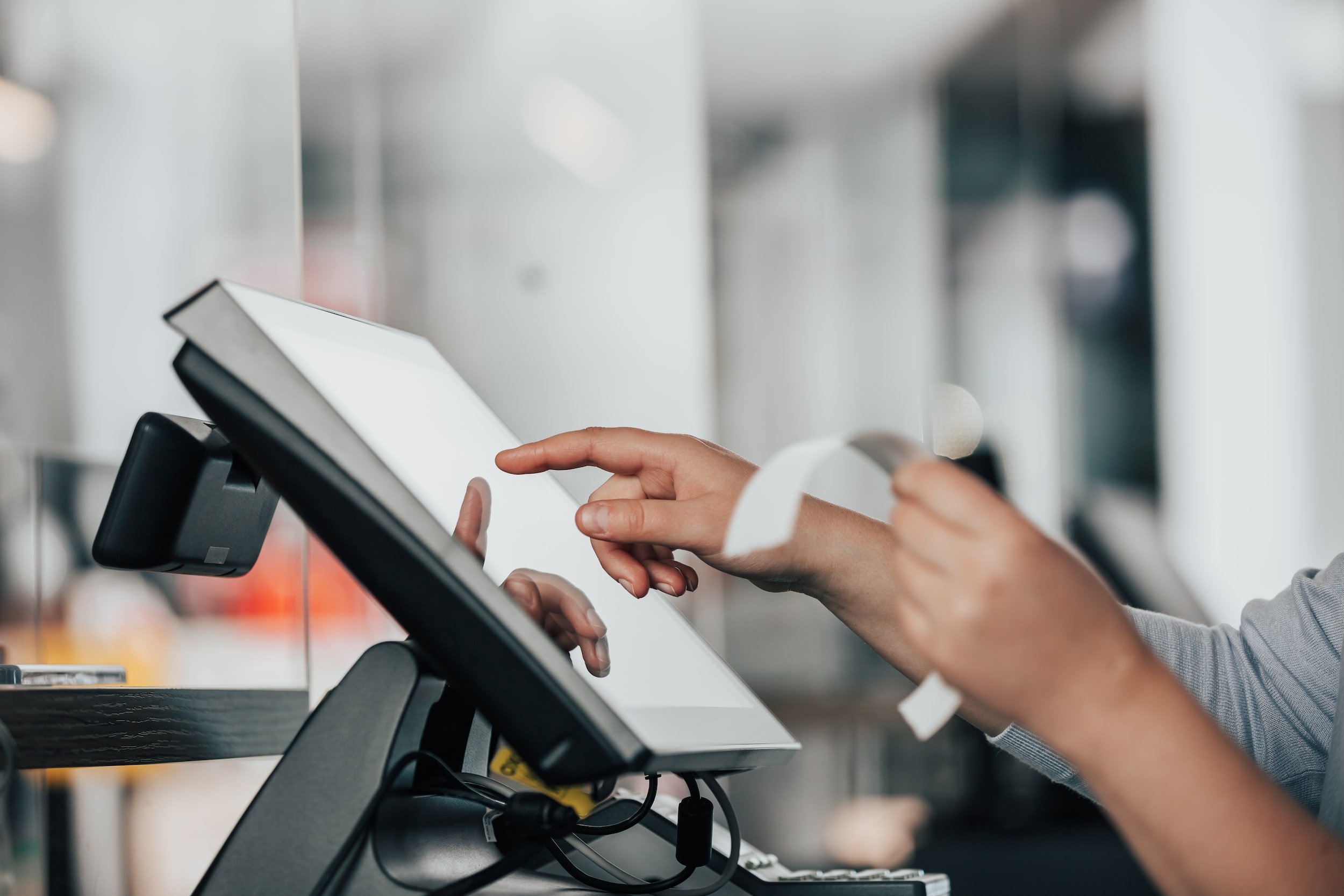As a retail store owner, having a good point of sale (POS) system can help you manage all your inventory, process every transaction, and keep track of sales. It seems like a great idea for every store to have one. But, getting started with a POS system can look drastically different depending on the kind of retail business you run. A busy restaurant might have vastly different needs from a wholesale shoe store, and an on-the-go contractor might not need every bell and whistle that the newest and premium POS Systems can offer.
The first step in getting started with a POS system is to determine your business needs. Consider the type of products you sell, the volume of sales, and your budget. Because there are so many kinds of business, there is no one-size-fits-all solution. As a busy clothing store where shoppers wait in long lines, you may want to offer as many payment options for your customers to conveniently pay from. As a big distributor, you may want accurate and efficient inventory management, allowing you to keep track of your supply levels in real time. Understanding your business needs is crucial with getting started with a POS System. This article by Square provides a helpful E-book on how to choose a POS system based on your business needs.
Once you have identified your business needs, it’s time to choose the right POS system. One of the many factors to think about when looking for a POS setup is your budget. Budget considerations extend beyond just the initial costs of a POS system. Here are some important things to think about:
Monthly Charges: Some POS systems charge a monthly fee for the use of their software. Make sure the system you select is within your spending limit by taking into account how much you’re willing to pay each month. What amount would you like to pay each month?
Pricing: It’s important to take into account the system’s initial cost, but don’t forget to take the system’s ongoing expenses into account as well. Although some vendors may have low upfront costs, they may charge more for support, upgrades, or extra features. Does the system provide a reasonable number of features for the price?
Costs of Customization: There might be extra fees if you require any modifications or hardware or software integrations. Do you need every bell and whistle a POS system has to offer?
Some POS systems can be very complex and require extensive training for your employees to use effectively. It’s critical to think about how sophisticated your system must be to meet your business needs, while also making sure it is simple to use and intuitive.
Think about how the POS system will work with the apps you already have. Does it integrate easily with your inventory management software, customer relationship management system, and/or accounting software? To reduce disruptions and streamline processes, look for a system that allows for simple integration with the apps you already use. It’s critical to take into account how well the POS system vendor provides both of these services. If there is a problem or issue, will they be helpful and responsive? To get the most from your POS system, look for a vendor who provides excellent support and resources.
Here’s a recent 2023 list ranking and comparing some of the best POS systems available for purchase right now.
Perhaps you want a POS system that can track everything from transactions to inventory. Inventory management is crucial for any business that sells physical products. Without proper inventory management, businesses may face the risk of running out of stock, leading to lost sales opportunities, or overstocking, which can tie up a significant amount of cash and storage space. A POS system can help businesses keep track of their inventory in real-time, providing up-to-date information about what products are in stock and what needs to be reordered. With a POS system, businesses can set up automated alerts to notify them when inventory levels fall below a certain threshold, allowing them to reorder products before running out of stock. Having accurate inventory data helps businesses make informed decisions about their purchasing and stocking strategies, which can have a significant impact on their bottom line.
While POS systems have a lot of functionality, it is only as insightful and accurate as the data that is entered in it is. This is often overlooked. Where a POS system really shines is when the data entry incorporated into them is as accurate as it can be. When getting started with a POS System, one of the best things you could do is to hire a professional retail management company, like 360 Retail Management, who will provide all the data entry for your POS system for a fraction of the cost of what you could find. Retail data managers like 360 Retail Management also provide a free trial, so you know how much you’ll pay and what they’ll be doing for you before you even pay them a penny. Here’s a breakdown of how it all works.
For retail store owners, a point of sale (POS) system is an invaluable tool, but picking the best one can be difficult. Identifying your company’s requirements in terms of its budget, sales volume, and product range is the first step. Once you’ve determined what you need, you can pick the POS system that best suits your needs and your budget. It’s crucial to take into account ongoing costs, and to make sure the system works seamlessly with the apps you already use. In order for the system to deliver accurate and insightful data, accurate data entry is essential. By using a professional retail management company, you can ensure that your data entry is accurate and efficient, enabling you to get the most out of your POS system. With the right POS system in place, you can manage your inventory, process transactions, and track sales, ultimately improving your bottom line.
